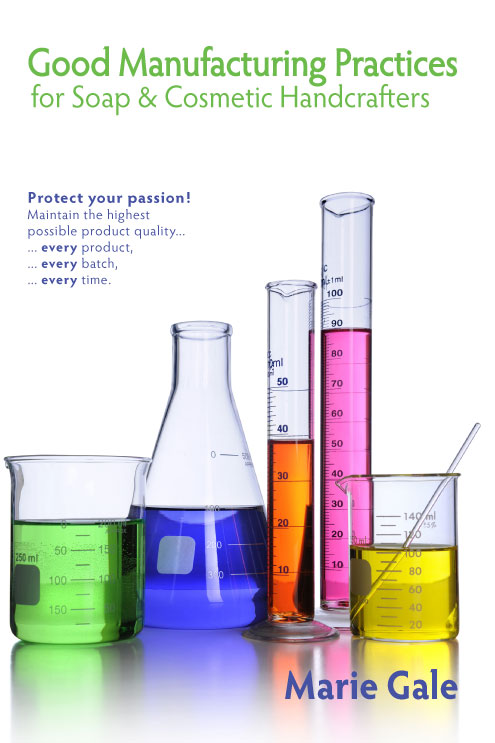In some states, there are specific regulations related to cosmetics. Ohio is one of those states. There, making your cosmetic products is regulated by the Ohio Department of Agriculture. (Note that soap is not considered a cosmetic, so these requirements do not apply if you make only soap.)
Laws and Regulations
The Ohio Pure Food and Drug Law1 sections on cosmetics are very similar to the federal Food Drug and Cosmetic Act (prior to MoCRA). Adulaterated or misbranded cosmetics are prohibited and cosmetic products must be correctly labeled. The Ohio Department of Agriculture is allowed to inspect facilities making cosmetics.
Ohio’s labeling rules are found in the Ohio Administrative Code, primarily 901:6-30-01 through 901:6-3-12. The rules are almost identical to the Uniform Packaging and Labeling Regulations provided by the National Institute of Technology in their handbook.
Inspection Required
In order to manufacture cosmetics in Ohio, you must get your faciliity inspected. The inspection should take place PRIOR to starting operations. There is no fee. No license is issued.2
The request for an inspection can be downloaded here.
Inspection Overview
You may make cosmetics in a residential setting (your home) but no pets are allowed in the manufacturing area.
The inspection is to determine if the manufacturing site is compliant with good manufacturing practices. Following good manufacturing practices is considered the best way to ensure that a product isn’t (and doesn’t become) adulterated or misbranded. For a more complete discussion of adulterated cosmetics, see What does ADULTERATED mean?
In general, good manufacturing practices involve:
- Suitable buildings and facilities
- Well maintained and clean equipment
- Personnel adequately trained and maintaining adequate cleanliness
- Raw materials are stored and handled so they don’t get mixed up or contaminated.
- Production is done using established and written instructions and procedures.
- Laboratory controls are in place as needed
- Records are kept on lots of raw materials & manufacturing batches
- Products are correctly labeled
- Complaint procedures are documented and in place.
Obviously, the implementation of these different factors is unique to each manufacturing facility. How they are adapted to manufacturing in a home would be very different than how they are adapted to a commercial facility.
The Ohio Dept of Agriculture specifically references the FDA’s Good Manufacturing Practice (GMP) Guidelines/Inspection Checklist for Cosmetics, which may be the actual checklist they use in their inpection.
Here are some additional resources for understanding what good manufacturing practices are and how to implement them:
- FDA – Cosmetic GMP; Draft Guidance
- ISO 22716 – Cosmetics Good Manufacturing Practices Guidelines ($$)
- Book – Good Manufacturing Practices by Marie Gale (Amazon.com)
Other Ohio Regulations
The Ohio Small Business Development Center has a page about starting a business in Ohio which includes checklists for a whole bunch of different businesses. One of those is the 1st Stop Checklist for Cosmetic Sales / Manufacturing. The document is quite short and lists out only a few points under the Requirements and Regulations:
- Comply with the Ohio Food, Drug, Cosmetic and Device law;
- Comply with Ohio’s labeling rules;
- If you sell in-home (door-to-door), you must comply with the Ohio Home Solicitation Sales Act;
- If you sell via mail, telephone or Internet, you must comply with the Ohio Telephone Solicitation Sales Act;
- Sales Tax.
If you sell products in Ohio, you must have a Vendor’s License, collect sales tax, file tax returns, and keep complete records of transactions. The Ohio Department of Taxation can help with that (or go to https://www.tax.ohio.gov).
And an Odd Quirk
In looking through the regulations, I did find one small item in the prohibited acts of the Ohio Food, Drug, Cosmetic, and Device law, about selling products at a flea market (the excerpt below only contains the pertinent sections):
Directly from the regulations:
(1) No person at a flea market shall sell, offer for sale, or knowingly permit the sale of any of the following products:
(b) Any drug, cosmetic or device;
(2) [This] does not apply to a person who keeps available for public inspection an identification card identifying the person as an authorized representative of the manufacturer or distributor of any drug, cosmetic or device, as long as the card is not false, fraudulent or fraudulently obtained.
Ohio Revised Code ORC 3715.52(B)
So apparently you could sell your OWN products at a flea market (if you have a valid card showing you are an “authorized representative”), or could sell products for a company that you representated (maybe Avon or Mary Kay, for example), but you couldn’t just go to the Dollar Store, buy a bunch of cosmetics and then resell them (since you wouldn’t be an “authorized representative” of the companies that made the products).
- Ohio Revised Code Chapter 3715 ↩︎
- Ohio Department of Agriculture Cosmetics webpage ↩︎



Leave a Reply